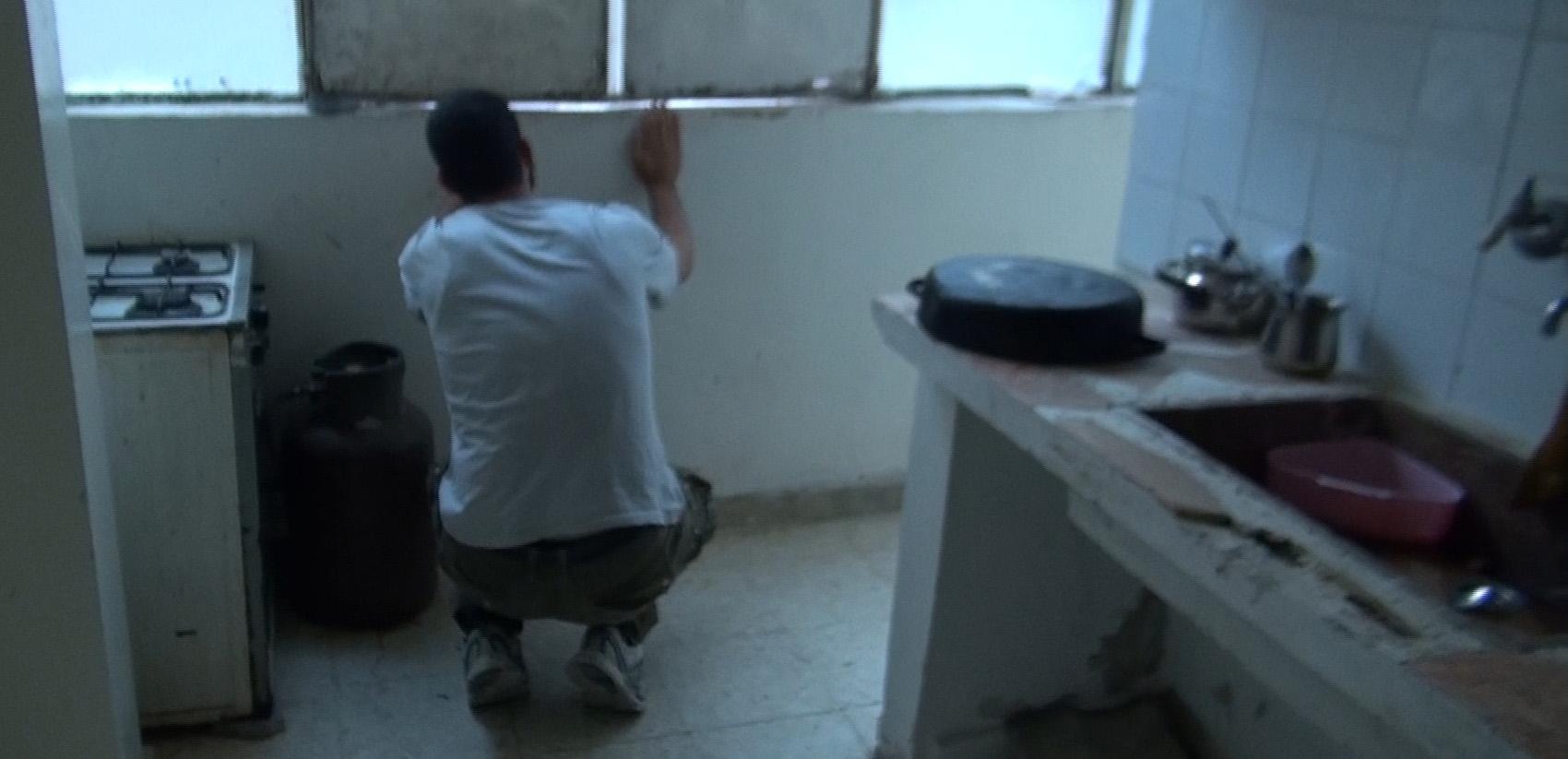FRONTLINE: Defectors from the Syrian Army
Syrian dissident in hiding checking for soldiers outside. (Photo: Ramita Navai)
For our partner program PBS FRONTLINE, reporter Ramita Navai, traveled to the Syrian countryside to meet four soldiers who are now on the run.
About 70 percent of the Syrian Army is made up of men who have been drafted. The opposition claims thousands of them are deserting. Rebels in Libya had Benghazi, but in Syria, the opposition has no safe place. If you defect from the army and can’t make it to Turkey, you have no place to hide. I traveled to the countryside–I can’t be any more specific than that–to meet four soldiers who are now on the run. For their safety, we cannot identify them.
One of the men was stationed in Rif Damascus, the suburbs of Damascus. When I asked him about their orders during the protests, he told me, [translated from Syrian Arabic] “At more than 40 demonstrations the people came out and we were commanded to shoot. If we refused to shoot, the militia would shoot us. I don’t know if I killed anyone or not but I did shoot at demonstrations and there were a large number who died… children and women, a lot of people died.”
Two of the other deserters were stationed in Deraa in the South, and one was stationed in Tartous on the coast in the North. They still had their government-issued identity badges and their uniforms. All claimed to have deserted because they were forced to fire on protesters. The soldier from Rif Damascus said they only shot at protesters because they feared for their own lives. “We stood at the front and the militia and security forces, Assad’s gangs, were behind us. If we didn’t shoot at protesters, they would shoot us. I saw with my own eyes when my friend beside me refused to shoot at the protesters. A sniper shot him in the head.”
These soldiers’ stories fit a familiar pattern, says Ausama Monajed, a member of the opposition Syrian National Council in London. “Many of them, naturally, will be come from that town or that city, and they will defect and refuse to shoot and kill civilians. So the intelligence from second row would shoot at them and kill them.
Most of the army— you know, most of those soldiers who were killed were shot from behind. And we have videos, and the doctors explaining how they were shot from a very close proximity and from behind, ‘executed.’ Because they refused to shoot.”
The stories of the soldiers I spoke with can’t be independently verified. But they maintain that many deserters are joining the revolution. One of them said, “We want to fight the regime. If we were given arms we would use them,” and another told me, “We hope for an armed revolution.”
According to Murhaf Jouejati , a Syrian-born specialist on Middle East affairs, men like these are swelling the ranks of a group called the Free Syria Army. “The Free Syria Army is a result of defections of Syrian soldiers from the regular army. They are defecting because they fear being shot, as some of their colleagues have been, by the security forces for refusing to shoot against civilians, and as a result you do have defections in the thousands.”
Many experts we spoke with are skeptical of those numbers, and the young men I spoke with had not joined the Free Syria Army, which is reportedly being coordinated in Turkey. Whatever the numbers, analysts like David Lesch worry about adding more armed fighters to the situation.
“What I fear is the increasing militarization of the opposition. More and more arms being sent into Syria; more defectors from the Syrian Army, militarizing and weaponizing the situation, where it does become an all-out civil war.”
The soldiers I talked to told me that President Bashar Al-Assad will not fall without war. But even if the Free Syria Army really has the 10-15,000 troops it boasts, it still faces security forces totaling more than 300,000–forces that are very experienced at putting down uprisings.
